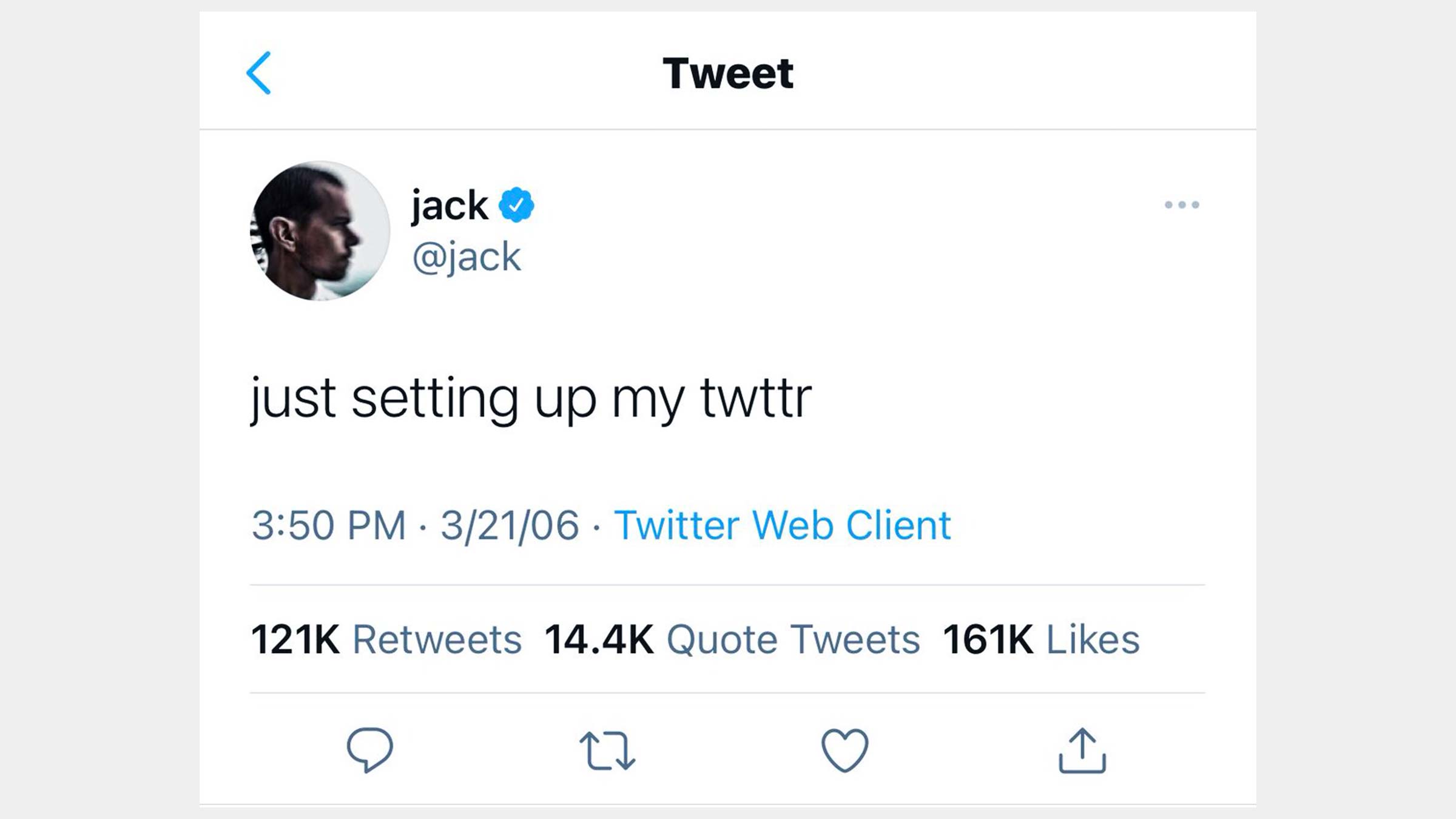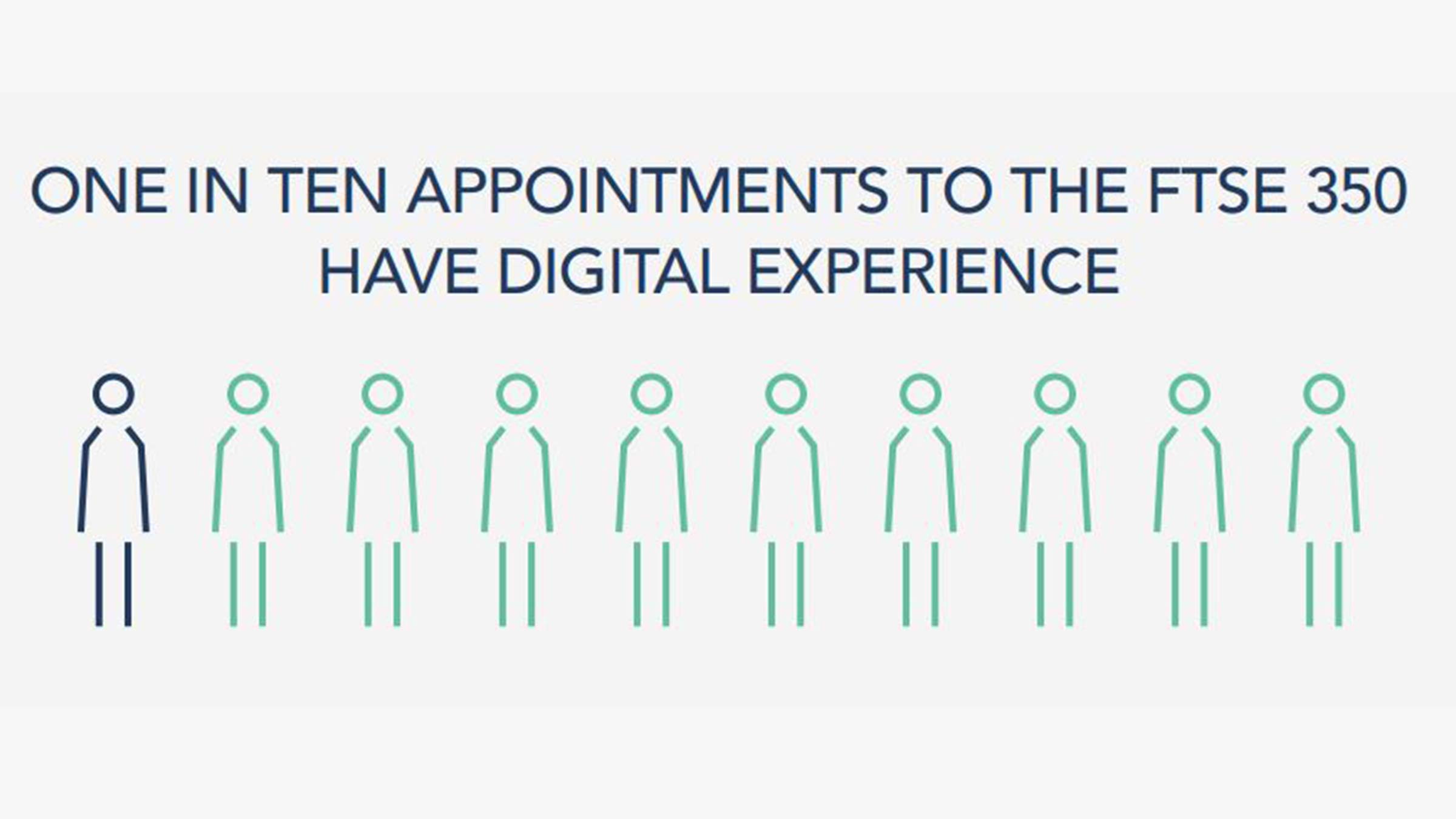Last year, Twitter founder Jack Dorsey sold an NFT of his first-ever tweet (“just setting up my twittr”) for $2.9m. Twelve months on, and this particular NFT has not proved the best investment for the Iranian-born crypto entrepreneur who bought it: after planning on auctioning the NFT off for $48m last week, Sina Estavi’s highest bidder is offering only $10,000.
This episode is a cautionary tale. The digital landscape is shifting rapidly, and while there is real money to be made in Web 3.0 – the name used for a new iteration of the internet based on blockchain technology – buying in brings significant risks.
If an understanding of Web 3.0, NFTs, the metaverse, cryptocurrency and blockchain technology evades you, then you’re not alone. For most executives and non-executives in our consumer-facing sectors, these concepts are infrequently discussed, and even less frequently understood.
But today, we are reaching a tipping point. Over the past few weeks and months, it has become clear – through conversations with digital trailblazers and leaders of forward-thinking businesses – that now is the time for companies to embrace these new technologies.
Committing to this new era of digital transformation means reimagining the optimum Board composition. As detailed in our signature report last year, at MBS we propose that non-executive Boards should include directors with a thorough understanding of this new technology and its applications – not just Board-level experience in a digital business. Our report contends that: “The Board of the future truly grasps digital, data and technology. Boards that incorporate genuine domain knowledge – from those who speak the language of technology and can translate it for their fellow Board members – are better equipped to challenge the business, and are clear-eyed on the risks and opportunities of digital, data and technology.”
While the benefits of a technology-literate Board are well understood, recent research has found that today’s Chairs may not be prioritising digital talent to the appropriate degree. Last month, we undertook an in-depth analysis of all appointments to FTSE 350 Boards in 2021 – and found that only one in ten NEDs appointed last year have digital experience.

In the consumer-facing sector, winning companies are weighing up future digital priorities and recalibrating their Board accordingly. After all, being ahead on digital is no longer about ecommerce or social media, but about reaching customers in the metaverse and embracing the opportunities of co-ownership.
“There is a tectonic plate shift in what the internet is going to become, and Web 3.0 is the next chapter of this,” commented David Eun, former Chief Innovation Officer at Samsung Electronics who has recently founded Alakai Group, an investment firm that transforms companies with technology-led innovation.
“There is a tectonic plate shift in what the internet is going to become, and Web 3.0 is the next chapter of this.”
Indeed, we have already experienced several iterations of the internet. Web 1.0, or the era of the browser, allowed users to read and access information previously only found offline, such as classified advertisements and newspapers. Web 2.0 provided interactivity, as businesses such as Facebook, Instagram and YouTube encouraged users to not only read but to create content, uploading data onto their platforms.
Web 3.0 describes the latest version of the internet, which is built on distributed technologies like blockchain rather than centralised on servers owned by individuals or corporations. In theory, this will create a more democratic internet: one in which the flow of information isn’t controlled by a single entity, and in which the servers, systems, and networks where applications are run from and where data is stored are owned by the users themselves. As a result, the revenue model is different.

But what does this mean for businesses?
For companies in our consumer sectors, Web 3.0 brings a number of practical opportunities. For starters, customer-facing websites built using blockchain technology have the potential to be significantly more unique and immersive than those currently available. Blockchain will also have a major impact on supply chain operations, allowing for increased traceability and greater protection against counterfeit goods. Moreover, we are already seeing brands explore opportunities presented by the metaverse. Decentraland is an entire virtual world built on the Ethereum blockchain, and, in March, Etro, Tommy Hilfiger, Perry Ellis, Dolce & Gabbana and Elie Saab among others participated in the platform’s first-ever Metaverse Fashion Week.
What’s critical to understand is the scale of the opportunity. Taken separately, the individual benefits of Web 3.0 may not seem particularly significant, or relevant to businesses in the consumer-facing sector. But companies which fail to understand and participate today run the risk of being left behind – in much the same way as those which failed to embrace ecommerce have suffered long-term consequences.
“But companies which fail to understand and participate today run the risk of being left behind – in much the same way as those which failed to embrace ecommerce have suffered long-term consequences.”
With this in mind, here are two recommendations from us at The MBS Group:
1. Embracing the next era of digital transformation must be a Board-level priority
The non-executive Board must drive long-term transformational change. While the executive – especially the CEO and CTO/CDO – has a crucial part to play, it is the Board’s role to determine an experimental, creative and bold approach to innovation, which trickles down to the rest of the business. “It’s not just about investing in blockchain,” said David Eun, “but about resetting the culture towards digital – so businesses feel they can go after new technologies.”
“The way I look at it,” furthered Matt Lavin, former Head of Strategy and Innovation at Samsung Electronics and co-founder of Alakai, “is that the Board often has a longer tenure than the executive management, especially in digital roles. But new technologies require long-term investment and long-term monitoring. Innovation should therefore be championed and monitored by a digitally minded Board that can apply a long-term lens to both development and risk management.”
As businesses move into the white space of Web 3.0, there will also be a new raft of ethical considerations around data and innovation. Next month, MBS will be publishing a white paper which explores the critical role of the Board in this area.

2. Boards must include at least one non-executive director who understands these new technologies
In order to truly spearhead technological adoption and transformation, non-executive Boards should include at least one director with deep domain knowledge of technology, and an understanding of how the web is evolving. This skillset is most likely to be found in young, perhaps first-time NEDs who truly understand the fundamentals of computer science from years working at the centre of a digital-first businesses – not a veteran non-executive whose only digital experience is sitting on the Board of a digital company. As detailed in Boards of the Future, finding directors who meet these criteria is not easy. Not only must they provide subject-specific knowledge, ask the pressing questions on innovation and be able to translate technological issues for the Board, but they must bring value to overall governance capabilities.
moira.benigson@thembsgroup.co.uk | liana.osborne@thembsgroup.co.uk | @TheMBSGroup








